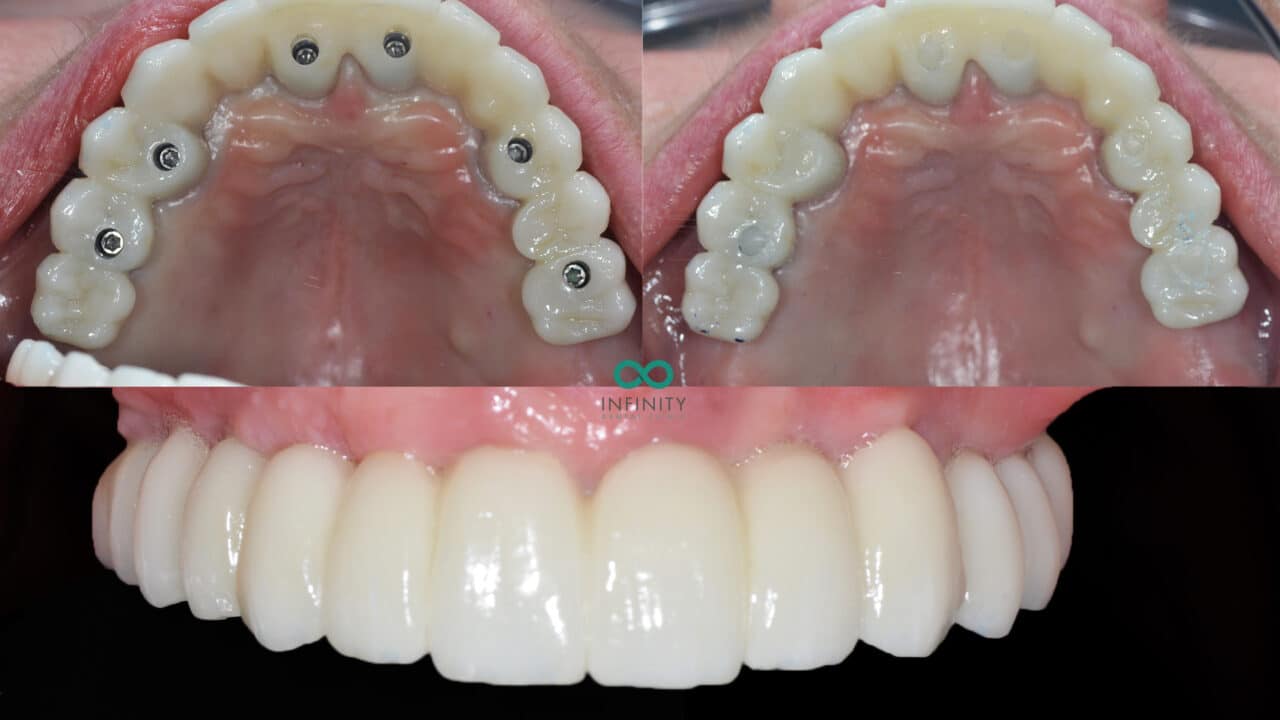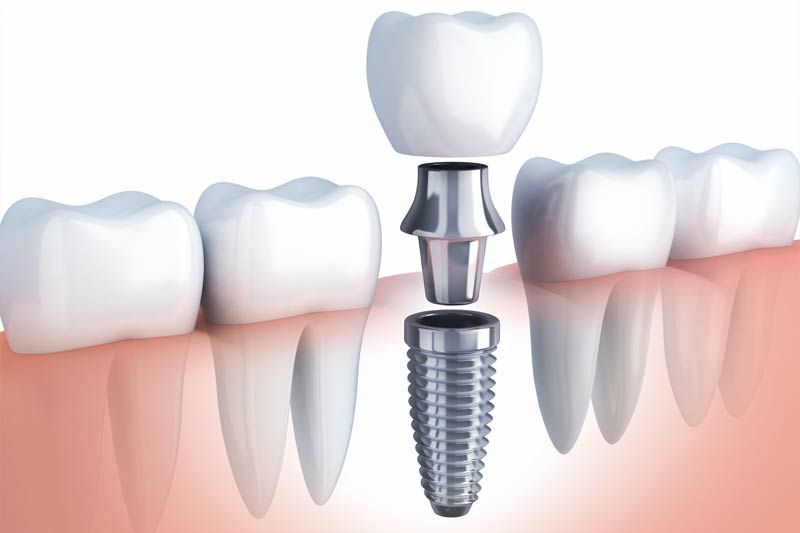Family Dental Clinic New Albany OH Step-by-Step Guide to Dental Implant Procedures
Family Dental Clinic New Albany OH Step-by-Step Guide to Dental Implant Procedures
Blog Article
Premier Dental Condit OH Dental Implants Cost Breakdown: What You Need to Know
Dental implants have emerged as a preferred selection for individuals in search of a long-term answer to tooth loss. One important aspect of understanding dental implants includes their effect on adjacent teeth. This is particularly necessary for ensuring the health and longevity of the complete dental structure.
When a dental implant is placed, it mimics the operate of a natural tooth root. By doing so, it helps preserve the integrity of the encompassing bone structure. Natural teeth rely on a balanced, interconnected system for help, and dental implants can contribute positively to that dynamic. The stability supplied by the implant allows for higher distribution of chunk forces, which can prevent undue stress on adjacent teeth.
Orthodontics Galena OH Step-by-Step Guide to Dental Implant Procedures
In cases where a tooth is missing, the neighboring teeth might shift into the vacant area. This shifting can lead to misalignment and various other problems. By inserting a dental implant, the chance of this shifting is decreased, because the implant acts as a placeholder that preserves the natural alignment of surrounding teeth. This preventive effect is crucial for long-term oral health and performance.
Another essential consideration is bone loss. When a tooth is lost, the jawbone in the space can begin to deteriorate because of a lack of stimulation. Dental implants help prevent this bone loss by providing the required stimulation to the jawbone, very related to a natural tooth root would. This preservation of bone not solely helps the implant itself but also contributes to the stability of adjacent teeth.
The kind of material utilized in dental implants, typically titanium, has a novel property of osseointegration, which means it fuses with the bone over time. This integration provides a sturdy basis for the synthetic tooth whereas guaranteeing that the implant doesn’t negatively affect surrounding structures. As the implant integrates, it creates an environment that contributes positively to the health of the adjacent teeth.

Regular dental check-ups play a vital role in monitoring the influence of dental implants on adjacent teeth. Professional assessments may help establish any points which will come up, guaranteeing immediate treatment and sustaining the health of the whole dental arch. These evaluations might embody X-rays to verify for bone density and the overall condition of the implant and surrounding teeth.
Pediatric Dentist Hartford OH Common Dental Implant Problems and How to Avoid Them
Oral hygiene practices are important for individuals with dental implants. Proper brushing and flossing habits not solely contribute to the longevity of the implant but additionally make sure that adjacent teeth remain healthy. Food particles and plaque that accumulate around the implant may cause problems, together with peri-implantitis, an inflammatory condition that may affect surrounding teeth and tissues.
The positioning of dental implants can affect the health of adjacent teeth. If an implant is placed at an angle or not properly aligned, it might result in elevated pressure on neighboring teeth. This misalignment may cause put on and tear on adjacent enamel, probably leading to cavities or other dental issues. Therefore, the talent and expertise of the dentist performing the implant procedure are paramount in attaining a successful consequence.
In some situations, further procedures could additionally be necessary to organize the encompassing area for an implant. Bone grafting or sinus lifts might help create a better setting for the implant. While these procedures are aimed toward enhancing the positioning for the implant, additionally they serve to guard the health of adjacent teeth by making a extra secure basis.
Premier Dental Centerburg OH Full Mouth Dental Implants

As dental know-how evolves, advancements in implant strategies result in better outcomes. Improved imaging techniques and computer-aided design allow for more precise placements that reduce risk to adjacent teeth. With these developments, the chance of complications that might arise from improperly positioned implants diminishes considerably.
Post-operative care also plays a crucial role in guaranteeing that adjacent teeth remain unaffected. Patients must adhere to the dentist's instructions concerning diet, oral hygiene, and follow-up visits. Neglecting these pointers could lead to problems that impression not only the implant but in addition the neighboring teeth.
Johnstown Dental Condit OH What Are Dental Implants? Types, Benefits, and More
In conclusion, dental implants, when placed accurately and cared for correctly, have the potential to boost the health of adjacent teeth quite than detract from it. They maintain alignment, stimulate bone growth, and provide a secure foundation that helps the whole dental structure. Understanding how dental implants affect adjacent teeth emphasizes their significance as a long-term tooth replacement answer. With continuous developments in expertise and methods, the combination of dental implants into restorative dentistry is becoming increasingly successful, ensuring healthy and useful smiles for years to come back.

- Dental implants prevent adjacent teeth from shifting into the gap created by a missing tooth, helping to take care of proper alignment within the mouth.
- The rebuilding of the jawbone by way of an implant can stimulate surrounding teeth and hold them healthy by providing essential bone density that might otherwise diminish.
- Adjacent teeth profit from the stabilization that dental implants provide, lowering the danger of damage and tear from misalignment throughout chewing.
- Implants can protect adjacent teeth by performing as a framework, which may distribute bite forces evenly across the dental arch instead of placing undue stress on neighboring teeth.
- When positioned appropriately, dental implants minimize the danger of gum disease which might affect adjacent teeth by maintaining a clear and wholesome gum line.
- The presence of an implant can facilitate an improved oral hygiene routine, as it eliminates the need for bridgework that might lure meals particles around adjacent teeth.
- Regular dental check-ups can reveal how properly the implant integrates with surrounding structures, making certain ongoing health for adjacent teeth.
- Implants can prevent the natural process of bone resorption that occurs after tooth loss, positively impacting the steadiness and longevity of adjacent teeth.
- The use of dental implants would possibly cut back the need for extra invasive procedures sooner or later, providing a long-term resolution that maintains the structure of the complete dental arch.
- Successful integration of an implant into the dental arch enhances overall oral perform, usually leading to improved confidence and oral health for adjacent teeth.undefinedHow do dental implants have an result on adjacent teeth?
What influence do dental implants have on the alignment of adjacent teeth?
Dental implants typically prevent the shifting of adjacent teeth, helping to take care of proper alignment. This stability can cut back the chance of developing chunk issues over time.
Can dental implants cause injury to nearby teeth?
When placed appropriately by a professional professional, dental implants should not damage adjacent teeth - Dentist New Albany OH. However, improper placement or inadequate planning might result in complications
Pediatric Dentist Alexandria OH Dental Implant Procedure: What You Need to Know Before Surgery
Do dental implants require any particular care relating to adjacent teeth?
Maintaining good oral hygiene is important. Surrounding teeth ought to be brushed and flossed frequently, and routine dental check-ups will assist make certain that both the implants and adjacent teeth stay healthy.

Will dental implants influence browse around this web-site the health of my surrounding teeth?
Dental implants can improve the health of surrounding teeth by distributing bite forces evenly, lowering put on and tear. Additionally, they will prevent bone loss in the jaw, which may affect adjacent teeth.
Family Dental Clinic Johnstown OH What Are Dental Implants? Types, Benefits, and More
Are there any long-term results of dental implants on close by have a peek at this site teeth?
Long-term, dental implants may help protect the health of adjacent teeth by stopping shifting and potential gum points, finally contributing to higher oral health general. - Mono Dental Implants New Albany OH
Can gum problems come up around adjacent teeth after getting implants?
If correct dental care is neglected, gum issues might develop round each the implants and adjacent teeth. Following post-operative care instructions is important to reduce these risks.
Dental Care Columbus OH Full Mouth Dental Implants: A Comprehensive Solution
How do dental implants examine to bridges by means of adjacent teeth?
Dental implants are typically helpful as they don’t require alteration of adjacent teeth, unlike bridges, which necessitate reshaping of close by teeth for support. (Smile Care Sunbury OH)
Can I nonetheless get cavities in adjacent teeth if I even have dental my sources implants?
Yes, adjacent teeth can nonetheless develop cavities if not properly cared for. Dental implants themselves cannot get cavities, but they require vigilant hygiene practices to protect surrounding natural teeth.
What is the success rate of dental implants in relation to surrounding teeth?
The success rate of dental implants is excessive, but it largely depends on the standard of the procedure and ongoing care. Well-maintained implants typically result in higher outcomes for adjacent teeth as well.